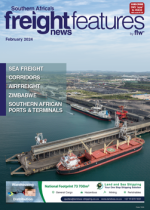In the face of the challenges created by the Covid-19 pandemic, geopolitical and economic upheavals, the ocean freight sector has navigated tumultuous years. Currently, the industry’s primary focus was rates, said Michelle Horner, ocean branch manager for SACO CFR in Durban."For both FCL and LCL shipments, the primary emphasis remains on freight rates in both import and export sectors. Additionally, for numerous industries, the significance of cargo routings and transit times is just as crucial as the consideration given to freight rates," she told Freight News. "This year has seen a significant decrease in freight rates that have dropped below pre-Covid levels. Alongside the decreased capacity, we are witnessing a reduction in cargo volumes, leading to a dual impact on the ocean freight sector. The combination of low freight rates and ample available capacity on vessels has inevitably led to diminishing profit margins for all carriers."Horner noted that due to the persistently low rates and ample vessel capacity, an upward trend in practices such as slow-steaming, schedule blanking, or sliding had emerged. Carriers are adopting these strategies to boost vessel occupancy by stimulating demand for available space. "Traditionally, the surge in demand for space would prompt rate increases through the implementation of General Rate Increases on contract rates. However, the prevalence of ‘spot rate’ offerings has shifted dynamics, compelling shippers to refrain from committing to long-term contracts or accepting contracts priced below prevailing ‘spot rate’ levels — terms that carriers are reluctant to embrace. The landscape has seen a decline in the prevalence of fixed-term and fixed-price contracts, with shorter and more f lexible agreements gaining favour in the c u r rent ma rke t ."Horner said following the challenges of the past three years, industry was now laser-focused on enhancing sustainability to stay relevant in this ever-evolving logistics sector. "Terminal delays, inclement weather, labour constraints and other negative factors will always be a factor to consider in global logistics – and South Africa in particular. Despite these hurdles, SACO CFR remains committed to its focus on offering f lexible and alternative solutions for its customers. While traditional shipping options and services remain reliable, the ability to collaborate with customers, cater to their specific requirements, introduce new services, explore alternative options, and provide adaptable pricing is essential for ensuring a sustainable future," she said.For the LCL market, SACO CFR mainly focused on providing f lexibility, said Horner, in terms of pricing and cargo routings. "We maintain an extensive range of direct LCL service offerings for both our import and export services. This cargo undergoes sealing at the origin hub and remains untouched until it reaches the destination hub," she said. "We also provide customers with alternative routings through transhipment hubs. This f lexibility in service offerings allows for subjective pricing scales, ensuring LCL solutions are tailored to various customer needs. While sustaining alternative routings, SACO CFR is actively expanding direct LCL container services at competitive pricing levels, even on 'non-traditional' routes. This approach aligns with the growing trend among South African importers and exporters seeking to diversify their source suppliers and end recipient."

